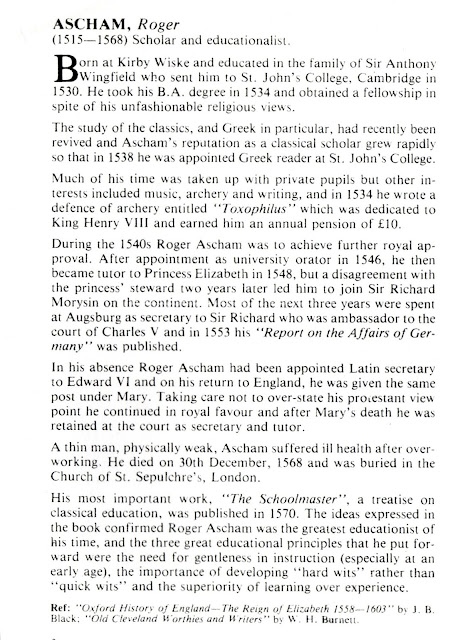Material to come to this.
Rev. Edward Chaloner, DD
Material to come to this.
Sir Thomas Chaloner, The Younger
Material to come to this.
Sir Thomas Chaloner, The Elder
Thomas John Cleaver
Material to come to this.
John Jackson of Rudy
Material to come to this.
Lionel Charlton
Material to come to this.
Francis Mewburn (First Solicitor of the S & D Railway)
The chapter is also on my archive of Joan Hackworth Weir’s Archive of material relating to railway engineer Timothy Hackworth.
http://joanhackworthweircollection.blogspot.co.uk/2014/05/francis-mewburn-s-d-solicitor-by-george.html
More related pages – Henry Heavisides (Stockton poet, printers, historian and musician’s History of the First Public Railway 1912. http://joanhackworthweircollection.blogspot.co.uk/2014/05/history-of-first-public-railway-m.html
Timothy Hackworth and the Locomotive by Robert Young (The book on Railway Pioneer Timothy Hackworth) http://www.nrmfriends.org.uk/shop.html
George Markham Tweddell also mentions Francis Mewburn in his book
History of the Stockton and Darlington Railway and its branches – George Markham Tweddell 1869
Roger Ascham 1515 – 1568
 |
Later in 1886 William Hall Burnett wrote about Roger Ascham in his book Old Cleveland – Local Worthies and Local Writers.
Rev. Bernard Gilpin – Norton on Tees
Bernard Gilpin (1517 – 4 March 1583), “was an Oxford theologian and then an influential clergyman in the emerging Church of England spanning the reigns of Henry VIII, Edward VI, Jane, Mary and Elizabeth I. He was known as the ‘Apostle of the North’, for his work in the wilds of northern England.”
Vicar of Norton on Tees
“In November 1552 he was presented to the vicarage of Norton on Tees, in the diocese of Durham. Persons appointed to livings in Royal patronage at that time were required to preach before the King, that there might be an opportunity of ascertaining their orthodoxy. Accordingly, on the first Sunday after Epiphany 1553 Gilpin went to Greenwich to preach in the Royal presence. His sermon on sacrilege is extant and displays the high ideal he had formed of the clerical office.”




